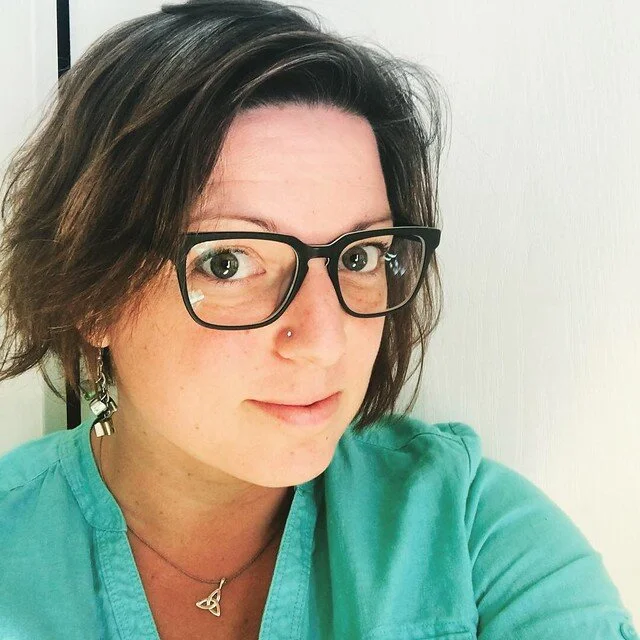Cultivating Mentoring Digitally and Among Peers
by Dr. Laura Pasquini, Learning Designer, Public Speaker, and Life Coach
The focus for September 2019 was on teaching research methods and guiding researchers, including masters or doctoral students, or early-career researchers. In this guest post, Dr. Pasquini shares her thinking about online peer mentoring in academic settings.
by Dr. Laura Pasquini
Mentoring of doctoral and early career scholars might vary slightly different across disciplines, the practice of mentorship is generally seen as both a relationship and process between at least two individuals seeking to share and build knowledge, expertise, and support (Williams & Kim, 2011). I know that mentoring happens informally and formally from peers, professors, colleagues, and more. Sometimes it is from a faculty advisor or supervisor; however, more often than not we meet professionals, practitioners, and peers who offer some form of personal/professional mentoring. In thinking back to your own graduate school or early career experience, who did you seek out or stubble upon for mentorship? Where did you find professional support for your research and career plans? Who was part of your mentoring community for the work you do?
Over the past few years, I have been working with a couple of scholars to understand more about how formal and informal mentoring experiences expose academic writers, researchers, and higher education professionals to resources and pathways for their own career growth. Many see their research advisors, supervisors, and sometimes leaders in a particular field as a formal mentor. Traditionally, mentoring is viewed as a face-to-face, long-term relationship with interactions between an experienced colleague and a novice professional or learner to support professional, academic, or personal development of the protégé (Donaldson, Ensher, & Grant-Vallone, 2000). This is no longer the only model or experience we are seeing with mentoring relationships, formal and informal. Graduate students and early career scholars/practitioners are beginning to form peer networks to learn and thrive as they set out on their own professional paths.
Access to digital platforms and emergent communication technologies, mentoring opportunities are far more expansive and offer new ways to establish and build mentoring relationships based on interest. With the opportunity to connect to scholars and practitioners beyond geographic boundaries, it is now possible to establish mentoring relationships one or many professional peers from afar. Also, the typical dyad of the mentoring experience is shifting as structures are evolving to support specific career goals and life changes. We are seeing more peer-to-peer, group, and networked/informal mentoring opportunities. In a recent study, we wanted to know more about these mentoring experiences by asking the following research questions:
What type of mentoring opportunities are you involved with formally or informally to reach their personal and professional goals?
What expectations and motivations did you bring to this mentoring relationship?
What sort of resources, support, and kinship within a peer mentoring network online?
In exploring mentoring opportunities in-person and within digital environments, we learned most early career scholars and professionals sought out a mentor to help them with the follow areas of development and growth:
Navigating the norms, expectations, and experiences working in academia
Gaining career advice and guidance for planning their professional path
Improving or developing a particular applied skill related to scholarship (e.g. academic writing, research methods, instruction, etc.)
Learning from others on team-based projects, labs, or group assignments that had a shared vision, goal(s), and outcome(s)
Offering and receiving feedback, personal support, and professional advice from and among their peers
Identifying ways to communicate, virtually team, and work collaboratively from a distance
There are so many possibilities of mentoring, and part of this is just the beginning. I am sure you have your own mentoring reflections to share, and are thinking of ways to support your colleagues, peers, and learners. If you want to find out more about this research, we will be posting our findings here: https://techknowtools.com/mentoring/
More about Laura Pasquini:
Laura Pasquini is a seasoned learning designer, curious learner, and active investigator. As an early career scholar-practitioner, Dr. Pasquini’s teaching and research explores mentoring experiences, networked practices, online communities, student support/advising, digital professional identity development, and open online learning environments. She consults with various education institutions, non-profit and corporate associations on the stewardship of technology for designing networked learning, improving organizational culture, and enhancing open, collective projects.
To encourage storytelling from peers, she co-hosts and produces two podcasts you can follow and find on Twitter: @InVinoFab and @BreakDrink. To escape from her digital life, you can often find her running, doodling, playing ukulele, and hiking with her pup, Jack.
Learn more about her work, research, training, and learning at https://techknowtools.com/ and on Twitter: @laurapasquini
References:
Donaldson, S. I., Ensher, E. A., & Grant-Vallone, E. J. (2000). Longitudinal examination of mentoring relationships on organizational commitment and citizenship behavior. Journal of Career Development, 26, 233-249.
Williams, S., & Kim, J. (2011). E-mentoring in online course projects: Description of an e-mentoring scheme. International Journal of Evidence Based Coaching and Mentoring, 9(2), 80–95.










Answers to questions about mentoring posed during a webinar (and the recording too!)